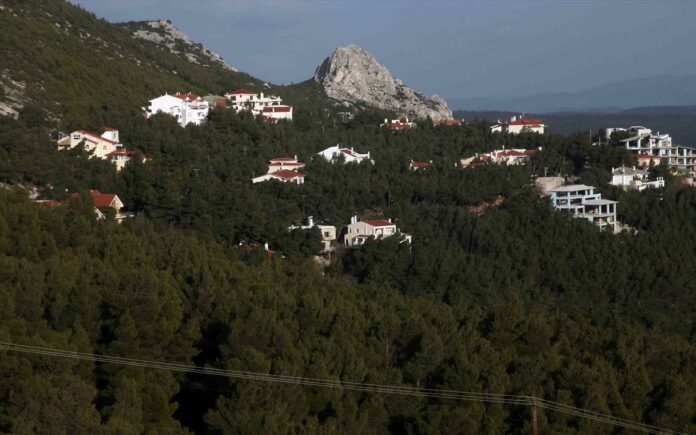The Council of State (CoS), Greece’s highest administrative court, this week ruled that a 2016 law excluding settlements of illegally built structures – mostly residences – from being included in published forest maps is unconstitutional.
Illegally built structures in areas without zoning and outside town planning boundaries is one of modern Greece’s biggest scourges, a particularly acute problem over recent decades, and one exacerbated by the lack of a functional, unified and digitalized land registry (cadastre) in the country.
Most of the illegal structures are residences, either primary or, in many cases, second homes, ranging from flimsy holiday dwellings to luxury villas straddling beachfronts and mountaintops. Illegal building in forests, semi-rural and coastal areas is also ubiquitous, with such structures once estimated at two million.
In the specific CoS decision, justices ruled that article 153 of law 4389/2016 contravenes article 24, paragraph 1 of the Greek constitution.
The law in question referred to settlements of illegally built structures as “residential densification”.














